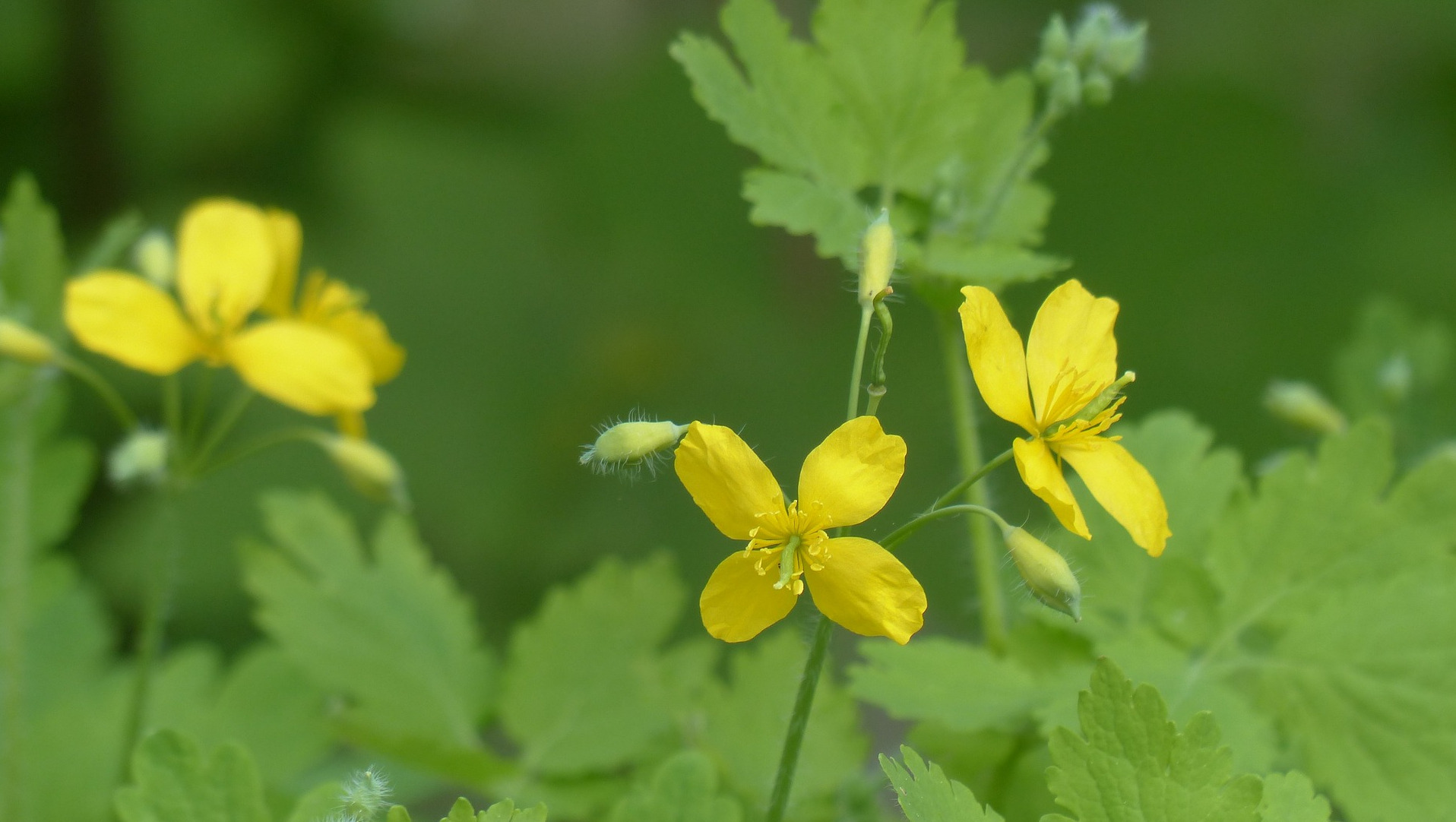Homeopathic Remedies Using Chelidonium Majus (Chelidonium / Chel)
Formal Name: Chelidonium Majus
Also Known As Chelidonium, Greater Celandine, Wartweed, Swallow Wort, Celandine
Introduction to Chelidonium Majus
Chelidonium Majus has been valued for centuries for its medicinal properties. Though it may not be commonly recognized by name, its juice has historically been used to treat various ailments, ranging from skin disorders to gallbladder problems. Chelidonium has established itself as a significant remedy within homeopathy due to its extensive range of therapeutic uses.
Chelidonium Majus is a perennial herb that can grow up to 30-120 cm tall. It is recognizable by its bright yellow flowers and orange-yellow sap, traditionally used to remove warts and treat skin conditions.
Chelidonium contains several alkaloids, including chelidonine, which are believed to contribute to its medicinal properties. These alkaloids have been studied for their potential effects on the central nervous system and their role in alleviating spasms and pain.
Chelidonium Majus, or Greater Celandine, is a valuable homeopathy remedy due to its extensive range of applications and historical significance. Its ability to address physical and emotional symptoms makes it a versatile and practical treatment option for many individuals seeking holistic healing.
Historical Significance
The name "Chelidonium" is derived from the Greek word for swallow, as the plant was believed to bloom when the swallows arrived and fade when they departed. In medieval times, it was a remedy for jaundice and other liver-related ailments.
In folklore, Chelidonium was associated with magical properties and was believed to protect against evil spirits. Due to its vibrant, long-lasting blooms, it was also used in various rituals and as a symbol of renewal and healing.
The use of Chelidonium Majus dates back centuries when its application in traditional medicine was widespread. The plant's bright yellow juice addressed numerous health issues, particularly skin and liver-related. As homeopathy evolved, Chelidonium was recognized for its potential to treat more specific conditions, thus cementing its place in the homeopathic pharmacopeia.
Preparation of Chelidonium
Chelidonium's homeopathic remedy is prepared using the entire flowering plant or its root. The plant material is chopped, pulped, and then macerated in alcohol for at least ten days. This mixture is diluted and succussed (vigorously shaken) to create the homeopathic solution. Although the final product contains virtually no traces of the original plant, it is believed to retain its therapeutic properties.
Homeopathy Benefits of Chelidonium
Chelidonium Majus is known for its broad range of therapeutic applications in homeopathy, particularly for conditions related to the liver, gallbladder, and respiratory system. Here are some of the primary conditions it is used for:
Hepatitis
Chelidonium is effective in treating hepatitis, a condition where the liver becomes enlarged and painful. The pain often extends down the back and across the right shoulder blade. Accompanying symptoms may include yellowing of the skin (jaundice) and a distended, tight abdomen. This remedy helps alleviate these symptoms by supporting liver function and reducing inflammation.
Gallstones
Chelidonium is particularly beneficial for gallstones and the specific symptoms they cause. Patients often experience sharp, constant pain in the upper right side of the abdomen, which worsens after consuming fatty foods. The pain may radiate to the shoulder blades, and there may be associated nausea and vomiting. Chelidonium helps relieve these symptoms and can reduce gallbladder inflammation.
Shoulder Pain
Chelidonium is helpful for shoulder pain that feels cold and extends down to the fingertips, with muscles that may be sore to the touch. This type of pain is often accompanied by nausea and vomiting. The remedy helps to alleviate the discomfort and associated symptoms, promoting overall relief.
Headaches
Chelidonium is effective for headaches that cause a heavy or weighed-down sensation on the right side of the head. These headaches are often associated with a numb face and a coated tongue. They may also be linked to liver disorders. Chelidonium helps reduce these symptoms, relieving the intense pain and discomfort.
Pneumonia
Chelidonium can be beneficial in treating pneumonia and addressing its symptoms. Patients may experience breathlessness, painful coughing, and difficulty breathing deeply. The remedy supports respiratory function and helps to ease the discomfort associated with pneumonia.
Homeopathic Remedy Profile for Chelidonium
Individuals who benefit most from Chelidonium as a homeopathic remedy often have aggressive and domineering personalities. They are typically more practical than intellectual and may consider emotional expression a waste of time. These individuals frequently have underlying liver disorders, which contribute to their physical and emotional symptoms. Chelidonium helps balance their aggressive nature and addresses the root causes of their ailments.



